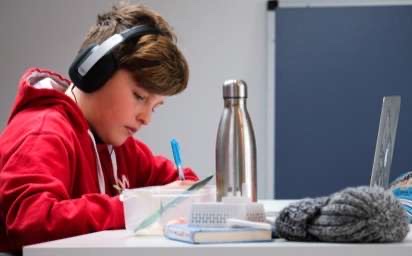 When GCSEs arrive, suddenly all previous tests and exams seem like, well, child’s play. How your child performs could have an impact on the rest of her life – from A-levels, to university and beyond. Gavin Evans (one daughter has jumped through the GCSE hoop; the other approaching it) takes another look.
When GCSEs arrive, suddenly all previous tests and exams seem like, well, child’s play. How your child performs could have an impact on the rest of her life – from A-levels, to university and beyond. Gavin Evans (one daughter has jumped through the GCSE hoop; the other approaching it) takes another look.
Q: What are GCSEs?
A: The General Certificate of Secondary Education (the equivalent of the old O-levels).
Q: When are they taken?
A: Over two years between the ages of 14 and 16 (Year 10 and 11).
Q: Which subjects do they do?
A: GCSEs can be taken in more than 40 academic and eight applied subjects (such as engineering and tourism). Some are compulsory (Maths, English, Science and Information and Computer Technology – and some schools require their students to study a second language). Other subjects are chosen by the student in Year Nine. Most take between eight and 12 GCSEs.
Q: How are they graded?
A: In most subjects they do at least one exam, but many also involve coursework contributing to the final grade. In some courses the exams are at the end of each module and in others there is one exam at the end of Year 11.
Q: What do the grades mean?
A: In terms of the National Qualifications Framework, Grades D-G are categorised as level 1; grades A* – C as level 2. Many schools require students to achieve higher grades if they wish to go onto A-levels in that subject and most schools require at least five GCSEs at grades A* to C before they can progress to the Sixth Form (for A-levels).
Q: How much work should they do?
A: The Government recommends that students in years 10 and 11 average one and a half to two and a half hours per day of homework but it obviously gets more intense as the GCSE exams draw closer.
Q: How can I help with revision?
Don’t:
• bully them into working
• keep telling them how much harder it was in your day
• do the work for them
Do:
• encourage them to get organised
• inspire them to stay motivated
• try to keep them calm
• suggest they draw up a revision timetable (with breaks every hour or so)
• provide specific assistance when requested








